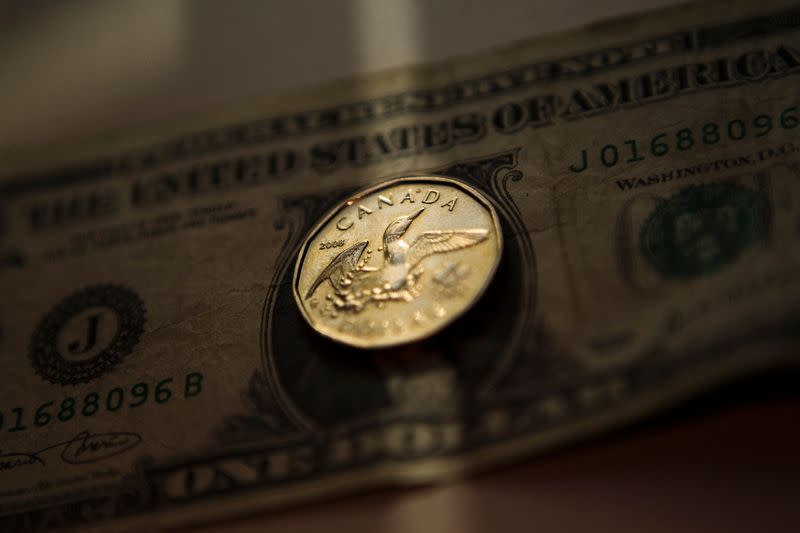Less Canadian dollar upside seen as U.S. election nears, Reuters poll finds

By Fergal Smith
TORONTO (Reuters) - The Canadian dollar is set to strengthen less than previously thought over the coming year as sticky inflation potentially delays Federal Reserve interest rate cuts and uncertainty grows ahead of the U.S. presidential election, a Reuters poll found.
According to the median forecast in the March 28-April 3 poll of more than 40 foreign exchange analysts, the loonie will strengthen 0.9% in the next three months to 1.34 per U.S. dollar, or 74.63 U.S. cents.
That would match the forecast in last month's poll, but the currency was then predicted to advance to 1.31 in a year, stopping short of the 1.30 forecast one month ago.
"There's still some risk here that we see U.S. inflation not co-operate and the (U.S.) dollar could be a little stronger into mid-year," said Erik Nelson, a macro strategist at Wells Fargo Securities in London.
Fed Chair Jerome Powell reiterated on Wednesday the U.S. central bank has time to deliberate over its first rate cut given the strength of the economy and recent high inflation readings.
U.S. President Joe Biden faces former President Donald Trump in the November presidential election. Trump has vowed to increase tariffs on Chinese imports, potentially triggering a new trade war.
"Trade is an important thing on everyone's mind and if we do see former President Trump re-elected, the focus will likely be on the trade measures he could enact," Nelson said.
Canada is a major producer of commodities, including oil, so its economy is particularly dependent on trade, particularly with the United States where it sends 75% of its exports.
RBC Capital Markets' Chief Technical Strategist George Davis also expects the U.S. dollar to remain strong, at least through the second quarter.
"Soggy domestic growth is expected to define economic activity in Canada during this time as elevated interest rates continue to weigh on the highly indebted Canadian consumer," he said.
Canadian household debt stands at more than 180% of disposable income compared to about 100% in the United States, OECD data shows, driven by participation in an undersupplied housing market.
The Bank of Canada has raised its benchmark interest rate to a 22-year high of 5% to cool inflation. Investors expect the central bank to maintain that setting at a policy decision next Wednesday, but to then begin a rate-cutting campaign in June or July.
(This story has been refiled to specify the time period, in paragraph 2)
(Reporting by Fergal Smith; Polling by Devayani Sathyan, Vijayalakshmi Srinivasan and Rahul Trivedi; Editing by Jan Harvey)


